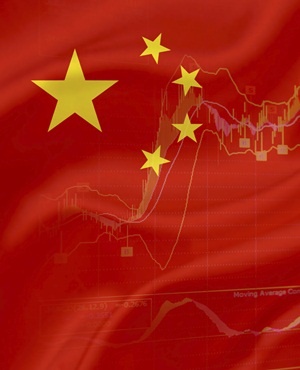China stocks rally fizzles, smallcaps slump

Shanghai – A rally for Chinese stocks fizzled as technology and small-company shares plunged on concern the resumption of initial public offerings will lure investors away from the nation’s priciest equities.
The Shanghai Composite Index slipped 0.1% to 3 604.80 at the close, erasing a gain of as much as 2%. Technology stocks, the best performers this year, posted the steepest loss among industry groups, while the ChiNext index dropped the most in a month.
The small-caps index is four times more expensive than the large-cap Shanghai gauge. Brokerages rallied on speculation a jump in trading since the nation’s equities entered a bull market this month will bolster their earnings prospects.
Analysts say traders may sell equities to raise cash to buy IPO shares, whose valuations will continue to be artificially kept down by regulators. A valuation cap has led to nearly guaranteed gains once new shares start trading, spurring investors to place bids worth hundreds of billions of dollars during each round of new listings.
The first 10 new stock offerings will lock up as much as 1.3 trillion yuan, according to Australia & New Zealand Banking Group.
“IPO shares will take some funds from the market as some investors are looking for cheaper assets,” said Wei Wei, an analyst at Huaxi Securities in Shanghai. “Small caps seem to be expensive now and some investors have started to take profits.”
Technology companies
The CSI 300 Index slipped 0.2%, erasing a rally of as much as 2.4%. Hong Kong’s Hang Seng China Enterprises Index rebounded 1%, halting two days of losses, while the Hang Seng Index gained 1.2%.
A gauge of technology stocks in the CSI 300 slid 2.7%, the biggest loss among 10 industry groups. Even after Tuesday’s decline, the sub-index has risen 49% this year for the best performer.
Wangsu Science & Technology lost 7.7% for the biggest decline since September 14, while East Money Information slumped 6%. The ChiNext slid 2.9%, taking its reported price-to-earnings ratio to 78%. That compared with the multiple of 19 times for the Shanghai Composite.
Twenty-eight companies that were in the process of listing when the freeze began will restart the process after November 20, according to the China Securities Regulatory Commission. It will take two weeks to complete the process, while the remaining 18 will sell shares by the end of the year, the regulator said.
From 2016 investors will no longer be required to deposit funds when applying for subscriptions, according to the CSRC.
Valuation cap
Unlike in most major stock markets, Chinese regulators control the timing and pricing of new listings. While policy makers have pledged to loosen their grip on the process, almost all of this year’s deals have been priced at levels below 23 times earnings.
Western Securities surged 3.7%, while Citic Securities added 1.5%. Brokerages such as Citic Securities, the nation’s biggest, are weathering probes into their senior executives as investors put more weight on a stabilizing stock market and the looming resumption in IPOs.
While brokerages’ earnings declined in the third quarter from the previous quarter, China International Capital this month predicted full-year profit growth of 85% to 150% for the 10 listed securities firms that they cover.
The outstanding balance of Shanghai margin debt rose by 5.8 billion yuan on Monday to 709.8 billion yuan.
Stocks link
One year after China allowed some of its citizens to directly trade Hong Kong shares for the first time, enthusiasm has turned to apathy.
Since a flurry of buying by mainland investors in April spurred the biggest monthly rally in six years for the Hang Seng Composite Index, average daily purchases of the city’s stocks via an exchange link with Shanghai have tumbled 89%.
Four of the five most popular targets through the connect are down more than 40% from April peaks, while the valuation discount on Hong Kong shares relative to Shanghai is even wider.
“Restrictions for retail investors with 500 000 yuan, a limited amount of stocks, higher margin requirements and obviously the large correction have all contributed to subdued interest from mainland investors in Hong Kong equities,” said Robert Buckley, a managing partner for Asia at Aviate Global LLP in Hong Kong.




